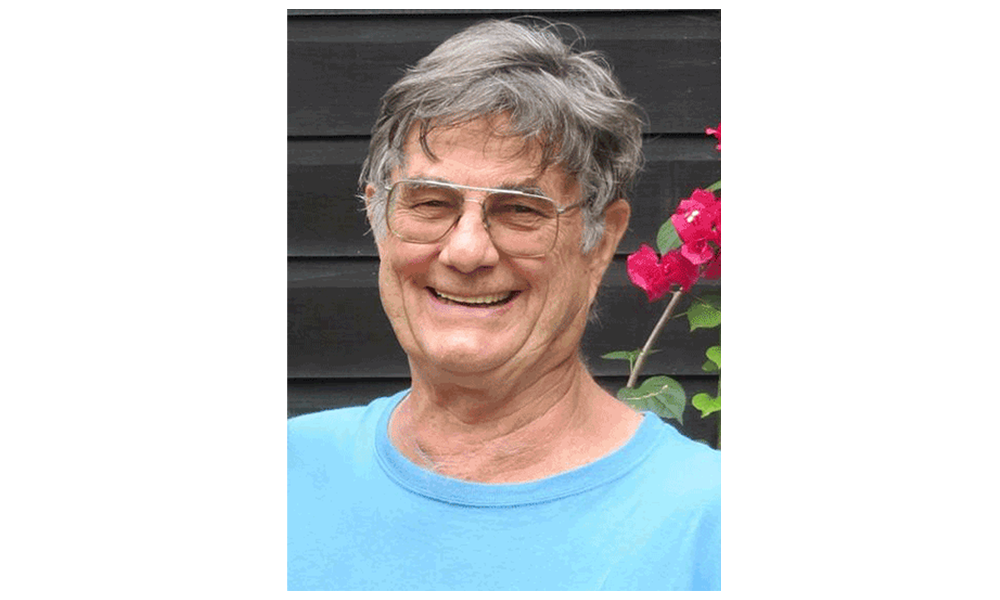Photo: Richard Foster
The award-winning British filmmaker met his end in the Rivera area of Belmopan after spending years working in a studio in the jungle, where he shared a home with his wife, Carol
BELIZE CITY, Thurs. Nov. 24, 2022
Richard Foster, 74, an award-winning British filmmaker who had made Belize his home and had been involved in a range of conservation efforts, was robbed and brutally murdered in August 2018 by men who apparently entered his home and ransacked it before kidnapping Foster and taking his car. His body was found in the Rivera area of Belmopan a few days after the crime had taken place. Yesterday, the three men accused of his brutal killing—Andrew Clark, Derwin Jones, and Anthony Pascasio—were acquitted in the Supreme Court after the presiding judge ruled that the prosecution failed to prove without a shadow of a doubt that the men were guilty of the crime.
Foster had been residing at the Savannah Guest House, his business and home, for a number of years with his wife, Carol Foster, who had been in the United States at the time of the incident and had tried to call Foster shortly after the incident but got no response. She had then asked the caretaker for the guesthouse to check on Foster, but when the caretaker went to the home the following morning, he found that it was open and had been ransacked. Foster, however, was not there.
The caretaker then called the police, and it was discovered, during a search of the premises, that two guns, a 9mm pistol and a shotgun, and Foster’s Toyota Hilux, were missing. The vehicle was found by police later in the day in the Mahogany Heights area in the Cayo District, in the bushes on a back road, and there were reportedly blood stains on the seat.
That night, police, acting upon information they received, discovered Foster’s body on the east bank of Roaring Creek. Foster had suffered head injuries, and there were ten stab wounds on his body.
An AMANDALA article had reported that “Although blood was found in Foster’s house and car, it was not substantial enough to indicate that he was killed in either place. There also was not enough blood found by the creek to indicate that he had been killed there.”
It has been reported that in the Supreme Court trial of the three men accused of the brutal crime, the primary evidence that was presented was the testimony of Derwin Jones, one of the three accused men who became the prosecution’s lead witness after the prosecution withdrew its case against him. Jones claimed that while he was with Pascasio and Clark when they burglarized the Foster’s home and that he was also with them in Foster’s truck when they went to the riverside in Belmopan, he was not involved in the murder that took place at that location.
Jones testified that he saw Pascasio walk Richard Foster down to the riverside, and that he also witnessed the fatal stabbing of Foster by Pascasio.
While the presiding judge did not find the testimony of Jones to be credible and also doubted the credibility of the purported alibis offered by Pascasio and Clark, he ruled that there was not sufficient proof to convict the men of the crime, and thus acquitted Pascasio and Clark.
According to an AMANDALA article dated August 9, 2018, “Richard Foster was a pioneer in the establishment of The Belize Zoo. In 1983, a filmmaking team that was headed by Foster, who was the cinematographer, came to Belize to film a documentary called ‘Selva Verde’.” According to the article, the now deceased founder of the Belize Zoo, Sharon Matola, had accompanied the team as the animal caretaker, and after filming, Matola “remained behind and created a makeshift zoo for the 17 animals.”
That article further stated, “Shortly after producing the documentary, Foster moved to Belize and became naturalized. He and his wife, Carol, have filmed many nature documentaries for National Geographic and BBC right here in Belize, and developed them at their guest house at Mile 29 on the George Price Highway. Some of Foster’s films include ‘Tales from Belize: Underwater World’ and ‘Paradise on the Edge’; ‘Mysteries of the Ancient Maya’; ‘Land of the Anaconda’; ‘Jungle Nights’; ‘Jaguar: Year of the Cat’; ‘Hope – The Harpy Eagle’; sequences for the highly acclaimed BBC documentary Planet Earth; and much more. The Fosters won two Emmys and many other awards for their work in Belize and around the world. Although they still made films, of late they had been primarily focused on conservation efforts.”

